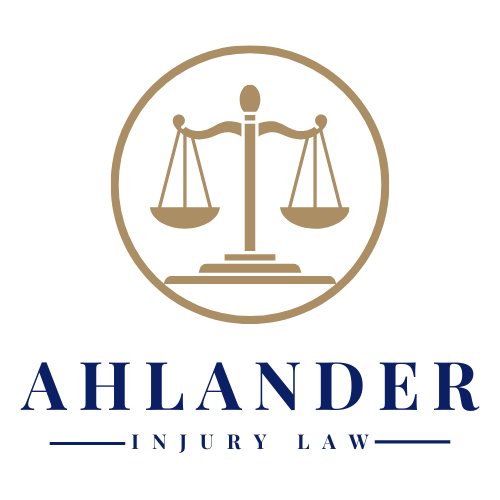Recovery and Legal Rights After a Workplace Injury
When an individual experiences an injury at work, the journey towards healing and seeking rightful compensation can be complex. This path is not only about physical recovery but also involves the intricacies of navigating legal processes to ensure one's rights are upheld. This discussion provides guidance on managing recovery alongside potential legal actions, with insights on promoting both physical and mental rehabilitation during this challenging time.
Understanding Your Rights and Workers' Compensation
Initially, grasping the full scope of workers' compensation rights is crucial. Workers' compensation laws are designed to provide relief to employees who suffer work-related injuries, offering medical benefits and compensation for lost wages without the need for litigation against employers. However, the specifics of these laws vary by state, making it essential to consult with a legal professional who specializes in this area to understand the relevant provisions and limitations.
Initiating a Workers' Compensation Claim
The process starts with reporting the injury to your employer as soon as possible. A delay in reporting can complicate claim processing and might even result in denial. Once reported, obtaining a copy of the workers' compensation claim filed by your employer is advisable. This document will serve as a basis for future proceedings and should be reviewed for accuracy and completeness.
Seeking Medical Attention
Immediate medical attention not only facilitates a quicker recovery but also serves as documentation of the injury, which is vital for the workers' compensation process. It's important to follow all prescribed medical treatments and attend follow-up appointments regularly. Keeping detailed records of medical visits and treatment outcomes can prove invaluable, especially if the injury leads to long-term health issues.
Documentation and Record-Keeping
Thorough documentation throughout the recovery and claim process is essential. This includes keeping a detailed diary of the injury's impact on daily life and work, correspondence with healthcare providers, and interactions with your employer or their insurance company. These records can provide robust support for your claim, ensuring that all aspects of the injury and its ramifications are duly recorded.
Managing Recovery and Employment
Balancing recovery with employment is a delicate process. Communicating openly with your employer about your limitations and the expected timeline for your return to work can help manage expectations and reduce conflict. If returning to your previous role is not feasible due to lasting impairments, discussions about modified duties or alternative positions within the company can also be essential.
Legal Considerations and Seeking Counsel
While many workers' compensation claims are straightforward, some might require legal intervention, especially if there are disputes regarding the extent of injuries or coverage. Engaging a workers' compensation attorney can provide guidance and represent your interests in hearings or appeals. Additionally, in cases where negligence is suspected, further legal action beyond workers' compensation claims might be necessary to seek adequate compensation.
Self-Care Practices for Mental Health
The mental and emotional impacts of a workplace injury are often as significant as the physical ones. Engaging in self-care practices such as mindfulness, meditation, and counseling can support mental health during this stressful period. These practices not only help in coping with anxiety and depression but also improve overall resilience.
Physical Rehabilitation and Long-Term Health
Physical rehabilitation often plays a critical role in recovery, involving exercises and therapies designed to restore function and reduce pain. Adhering to a rehabilitation plan tailored to your specific needs is crucial for effective recovery. Long-term health considerations should not be overlooked, and implementing lifestyle changes such as a balanced diet and regular exercise can aid in maintaining overall health and preventing future injuries.
Navigating Return to Work and Career Adaptations
Once recovery progresses, considering a return to work involves assessing your physical readiness and any ongoing health concerns. This might require vocational rehabilitation, which focuses on strengthening the skills needed for your job or potentially retraining for a new role. Employers often have programs to assist with this transition, and taking advantage of these resources can ease the return to the workforce.
Ongoing Monitoring and Adjustments
Recovery from a workplace injury is rarely linear, and ongoing monitoring of one's physical and mental health is key. Adjustments to medical treatments or rehabilitation plans might be needed based on recovery progress. Regular consultations with healthcare providers will ensure that any complications are promptly addressed and managed effectively.
Recovering from a workplace injury involves a nuanced blend of physical care, legal savvy, and emotional support. By understanding and utilizing the resources available, individuals can navigate their recovery more effectively while ensuring their rights are protected. This challenging journey requires patience and persistence, but with the right approach, returning to work and resuming normal life is achievable. Through proactive management and informed decision-making, the disruption caused by a workplace injury can be mitigated, leading to a healthier and more secure future.
If you've suffered a workplace injury, navigating your recovery and compensation claims doesn't have to be a journey you make alone. Our dedicated team specializes in ensuring that your rights are protected every step of the way - let us guide you through to recovery and justice. Contact us today to learn more about how we can help you.





